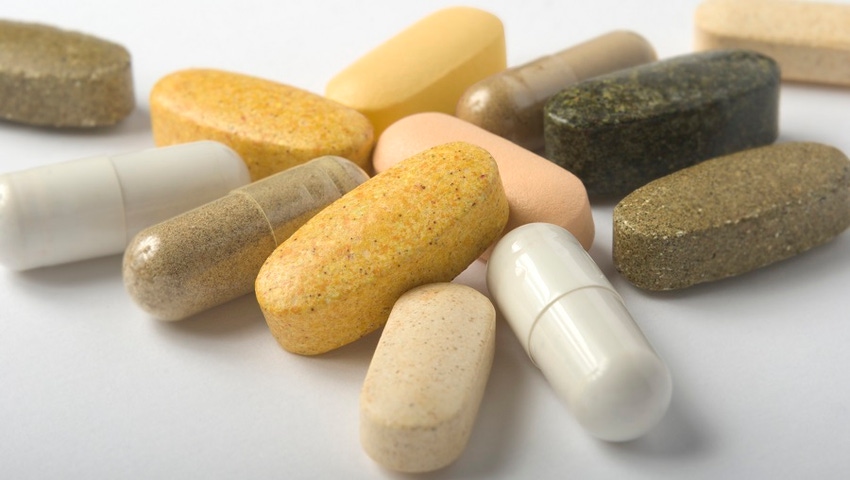Dietary Supplements: 2016 Year in Review
In 2016, the dietary supplement industry took proactive measures to stay ahead of controversy and to reaffirm consumers’ trust in the industry, including taking measures to increase transparency, prevent adulteration and expand the market via research and innovation.
December 5, 2016

In 2016, the dietary supplement industry took proactive measures to stay ahead of controversy and to reaffirm consumers’ trust in the industry, including taking measures to increase transparency, prevent adulteration and expand the market via research and innovation.
Several reports in 2016 showed industry’s efforts are paying off. Seventy-one percent of U.S. adults—more than 170 million—take dietary supplements, according to the most recent annual survey conducted by Ipsos Public Affairs on behalf of the Council for Responsible Nutrition (CRN). Results of the 2016 CRN Consumer Survey on Dietary Supplements showed energy (30 percent) has risen to become the No. 2 reason for taking supplements among supplement users, behind only “for overall health and wellness benefits" (42 percent), which remains top of mind.
In years past, the top two reasons for taking supplements among supplement users were for “overall health/wellness benefits" and “to fill nutrient gaps in my diet." “To fill nutrient gaps in my diet" now ranks third when it comes to reasons why supplement users take supplements, at 28 percent.
The 2016 CRN Consumer Survey on Dietary Supplements found that the five most popular supplements are the multivitamin, vitamin D, vitamin C, calcium and vitamin B/B complex. Further, Americans’ confidence in dietary supplements remains strong, with 85 percent of U.S. adults have overall confidence in the safety, quality and effectiveness of dietary supplements. Among supplement users, 96 percent indicated confidence.
JAMA published a study in 2016 reviewing use of dietary supplements in the United States between 1999 and 2012, and found 52 percent of U.S. adults report use of supplements. What’s more, use has remained stable between 1999 and 2012, though certain supplements showed varied usage patterns. Use of multivitamins, for example, declined from 37 percent of adults reporting use in 1999-2000 to 31 percent reporting use in 2011-2012. Use of fish oil and vitamin D increased (up 11 percent and 14 percent, respectively), along with use of probiotics and lycopene, while use of vitamins C and E and selenium decreased.
Not as positive was Consumer Reports’ list of “15 supplement ingredients to always avoid." However, industry didn’t lose sleep over the list. In fact, CRN’s President and CEO Steve Mister referred to the article as “same old, same old," and didn’t expect much impact.
In November, the Supplement OWL (Online Wellness Library)—a dietary supplement product registry established by CRN—began accepting product labels from dietary supplement finished product manufacturers and marketers as the product registry moved into its phase two of beta-testing. This phase will demonstrate the scalability of the Supplement OWL. Once there are a substantial number of product labels incorporated at this stage—Tier 1 of a 2-tier design—the registry will launch publicly and be available at no charge.
Education, Innovation & Trends
2016 welcomed the 20th SupplySide West, which took place in Las Vegas, Oct. 4-8. At the show, winners of the annual consumer packaged goods (CPG) Editor’s Choice Awards were announced. Winners were selected from five finalists across 22 categories. View the winners of the Editor’s Choice Awards in the Supplements categories via this Image Gallery and this Video.
The show floor at SupplySide West welcomed more than 1,200 exhibitors bringing innovative ingredients and solutions to market. INSIDER editors scouted the latest trends evident on the show floor. Within the supplements category, trends included personalization, non-GMO certifications, protein, “whole food" nutrition, and more.
Innova Market Insights also unveiled three key nutraceutical trends to watch at Hi Europe in Germany, Nov. 29 to Dec. 1, including heart health, cognitive health and digestive health.
These trends are reflected in ingredient trends in the supplement space in 2016:
Vitamin K2—an ingredient increasingly known for its heart health effects—was the topic of a workshop at SupplySide West, and also was the subject of new research in 2016 showing vitamin K2 was inversely correlated with early cardiovascular disease (CVD) mortality; reduced risk of CHD (coronary heart disease) in hypertensive participants; supports cardiovascular health by impact markers of inflammation, and more.
Use of probiotic supplements—known for their benefits to digestive health—increased from around 1 percent of the American adult population in 2005, to almost 15 percent in 2015, according to the Mind of the Consumer Report, developed in partnership between Informa Exhibitions and Natural Marketing Institute and revealed at Ingredient Marketplace in Orlando. Further, several studies examining the effects of probiotics were published in 2016, bolstering support for the bacteria’s benefits in categories such as sports nutrition, oral health, cognitive health and more. Internationally, probiotics met some challenges in 2016, including elimination of the term "probiotic" from product labels in Europe.
Other trending ingredients include omega-3s—also discussed in the Mind of the Consumer report—and curcumin, which is gaining traction for its anti-inflammatory effects.
Regulatory
Several key regulatory developments affecting dietary supplements took place in 2016, including FDA’s long-awaited new dietary ingredient (NDI) draft guidance, the federal genetically modified organism (GMO) labeling bill, the updated Nutrition Facts label for both foods and supplements, and interactions between the supplement industry and state Attorneys General. Read more about these key regulatory developments, among others, by visiting the INSIDER Law Blog.
About the Author(s)
You May Also Like






.png?width=800&auto=webp&quality=80&disable=upscale)